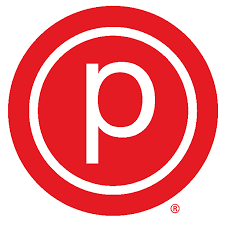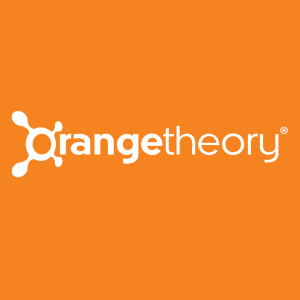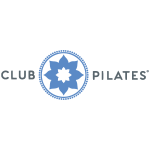Pure Barre Franchise in 2025: Costs, Fee & FDD
Considering investing in a Pure Barre franchise? Dive into our analysis to uncover key insights, including costs, potential earnings, and the pros and cons of joining this renowned fitness brand. Discover whether Pure Barre aligns with your investment goals.

Table of Contents:
Pure Barre is a powerhouse in the fitness boutique industry, known for its specialized approach to low-impact, high-intensity workouts. Founded in 2001 by Carrie Rezabek Dorr, a dancer, choreographer, and fitness enthusiast, Pure Barre has grown from a single studio in Birmingham, Michigan, to a nationally recognized brand. Dorr’s vision was to create a workout that combined elements of ballet, Pilates, and yoga, which would appeal to women looking for a challenging yet accessible fitness routine. Over the years, Pure Barre has carved out a significant niche in the fitness industry, becoming synonymous with the barre workout trend.
The core product of Pure Barre is its barre-based workout classes, which focus on small, isometric movements designed to improve strength, flexibility, and overall body tone. Classes are typically 50 minutes long and are structured to work every major muscle group, with an emphasis on the core, arms, thighs, and glutes. In addition to its signature classes, Pure Barre also offers ancillary services like private training sessions, retail sales of branded workout apparel, and fitness accessories. The franchise primarily targets women aged 25-55 who are seeking a community-oriented, results-driven workout environment, but it has a growing appeal among men and younger fitness enthusiasts as well.
As of now, Pure Barre boasts over 600 studios across the United States and Canada, with a rapidly expanding international presence. The franchise serves thousands of dedicated clients daily, making it one of the largest and most successful barre brands globally. With locations in major cities and suburban areas, Pure Barre has become a go-to for fitness lovers seeking a consistent and high-quality workout experience. The franchise’s growth is a testament to its ability to meet the needs of a diverse clientele while maintaining a strong brand identity.
Pure Barre offers an extensive support system for its franchisees, starting with a comprehensive training program that covers everything from business operations to teaching the Pure Barre technique. Franchisees receive ongoing support through marketing assistance, access to proprietary technology, and continuous education opportunities. The brand’s community-driven focus also means that franchisees benefit from a loyal customer base and a strong network of fellow owners. This support, combined with the brand’s established reputation, makes Pure Barre an attractive investment for those looking to enter the fitness industry.
Pure Barre Franchise Insights
- Pure Barre’s franchise network has grown to over 600 studios, making it one of the largest barre-based fitness brands globally, serving over 100,000 clients daily.
- The brand boasts a 92% customer retention rate, reflecting its strong community focus and effective workout programs that keep clients coming back.
- The franchise has a strong online presence, with virtual classes and a mobile app, which expanded significantly during the pandemic, increasing accessibility for clients worldwide.
Pure Barre Franchise Key indicators
Growth YOY (%)
0%
vs industry 5%
Total U.S. Franchised Units
615
3-Year Failure Rate
7%
vs industry 9%
Sales-to-Investment ratio
0.9:1
How much does it cost to open a Pure Barre franchise?
Understanding the potential investment size and capital requirements is crucial when considering opening a Pure Barre franchise. These financial commitments, including initial franchise fees, equipment costs, and ongoing operational expenses, impact the feasibility and profitability of the venture. Thoroughly evaluating these factors ensures that potential franchisees are prepared for the financial responsibilities and can make informed decisions about their ability to sustain and grow the business, ultimately contributing to long-term success.
Min & Max Investment
Opening a Pure Barre franchise involves several key costs, which are outlined in Item 7 of the Franchise Disclosure Document (FDD). You can see a breakdown of the costs to open a Pure Barre below from the most recent Item 7 below:
| Type of Expenditure | Minimum Investment | Maximum Investment |
|---|---|---|
| Initial Franchise Fee | $60,000 | $60,000 |
| Initial Training Program Fees | $0 | $0 |
| Travel & Living Expenses While Training | $0 | $3,000 |
| Real Estate/Lease and Professional Fees | $19,000 | $31,000 |
| Net Leasehold Improvements | $102,000 | $166,000 |
| Signage | $10,000 | $18,500 |
| Insurance | $1,050 | $2,500 |
| Payments for Fitness Equipment & Initial FF&E Package | $2,200 | $5,900 |
| Pre-Sales and Soft Opening Retail Inventory Kit | $15,000 | $15,000 |
| Computer System, A/V Equipment, and Related Components | $17,500 | $18,500 |
| Technology, Music, and Software Fees | $2,280 | $2,280 |
| Initial Grand Opening Marketing & Advertising Spend | $15,000 | $25,000 |
| Initial Instructor Training Fees | $11,300 | $11,300 |
| Additional Funds - 3 Months | $10,000 | $60,000 |
| Total Estimated Initial Investment | $265,330 | $418,980 |
Item 7 in the Franchise Disclosure Document (FDD) is the “Estimated Initial Investment” section. It outlines the total costs a franchisee can expect to incur when starting a franchise, including the initial franchise fee, equipment, inventory, real estate, and other startup expenses. This section is crucial because it provides potential franchisees with a detailed understanding of the financial commitment required, helping them assess affordability and plan their investment strategy effectively.
Required Capital
Opening a Pure Barre franchise or a similar boutique fitness studio requires careful financial planning. Here are the typical financial requirements:
- Initial Investment The total investment to open a Pure Barre studio generally ranges from $265,000 to $419,000. This includes costs for leasehold improvements, equipment, initial inventory, and working capital. Assuming that you will finance your franchise investment, you should plan to have 20% of the total investment amount in the form of equity (cash) for the investment.
- Liquid Assets Requirement Prospective franchisees are typically required to have liquid assets of at least $100,000 to $150,000. This ensures they have the necessary cash flow to cover operational expenses in the early stages.
- Net Worth Requirement A minimum net worth of around $300,000 to $500,000 is often required. This includes the value of your assets, such as property, investments, and savings, minus your liabilities.
How much does a Pure Barre franchise owner make?
Calculating the salary of a Pure Barre franchise owner involves analyzing gross sales to determine total revenue, assessing operational efficiency to understand profit margins, and accounting for franchisor fees and additional expenses such as rent, utilities, and payroll. Effective management of these factors can significantly impact the profitability and financial success of a Pure Barre franchise owner. This comprehensive financial analysis helps estimate net profits, from which the owner’s salary can be derived. A clear understanding of these factors ensures accurate salary projections and financial planning for sustainable business operations.
Pure Barre Revenue & Gross Sales
Pure Barre’s recent revenue performance showcases its strong position in the boutique fitness industry. The most recent data shows franchisees with median gross sales is $320,875, reflecting its ability to attract and retain a loyal client base yet showing that there may be a relatively low cap in terms of revenue potential. With a network of over 600 studios, Pure Barre continues to deliver solid financial returns for its franchisees, demonstrating the brand’s resilience and appeal in a competitive market.
Which key factors impact the average revenue performance of Pure Barre franchisees?
The performance of U.S. franchisee median gross sales for Pure Barre is likely driven by several key factors. The brand’s strong community focus and emphasis on creating a supportive, results-oriented environment help attract and retain a dedicated client base. The unique blend of low-impact, high-intensity workouts that appeal to a wide demographic, particularly health-conscious women, ensures consistent class attendance and membership renewals. Additionally, Pure Barre’s robust franchisee support system, including comprehensive training, marketing assistance, and continuous innovation in class offerings, allows franchisees to effectively manage their studios and maintain steady revenue growth. The brand’s reputation for quality and consistency further enhances its ability to perform well in a competitive fitness market.
Pure Barre Franchise Operational Costs
When opening a Pure Barre franchise, it’s essential to be aware of the ongoing operational costs that will impact your day-to-day profitability. These costs can vary based on location, size, and other factors, but here are the primary ones to consider:
- Lease and Rent The cost of leasing a prime location in a high-traffic area is a significant ongoing expense.
- Employee Salaries Paying instructors and front-desk staff is crucial to maintaining high-quality service and customer satisfaction.
- Utilities and Maintenance Regular expenses like electricity, water, and upkeep of the studio ensure a smooth operation.
- Marketing and Local Advertising Promoting your studio within the local community is vital to attracting and retaining members.
Keeping a close eye on these costs will help you manage your budget effectively and optimize the profitability of your Pure Barre franchise.
Pure Barre Franchise Fees
When considering the financial commitment of opening a Pure Barre franchise, it’s important to understand the ongoing fees that will be part of your operational expenses. These fees ensure that you receive continuous support from the franchisor, maintain brand standards, and benefit from national marketing efforts. Here’s a breakdown of the key fees you’ll need to account for:
- Royalty Fee You’ll be required to pay 7% of your studio’s gross sales each week. This fee grants you access to Pure Barre’s established brand, ongoing support, and proven business systems, which are essential for running a successful franchise.
- Contributions to Brand Development Fund To help fund national marketing campaigns and brand-building efforts, you’ll contribute 2% of your gross sales. This investment ensures that Pure Barre maintains a strong market presence and continues to attract new customers to your studio.
- Additional Fees There are additional fees for training programs, technology, and other items provided by Pure Barre that may be applied.
Understanding these fees will help you plan your finances effectively and ensure that your Pure Barre franchise runs smoothly and profitably.
Pure Barre Franchise Earnings
The earnings of a Pure Barre franchise owner can vary depending on several factors, such as location, sales volume, and how efficiently the business is managed. However, with hands-on management, owner-operators have the potential to achieve solid returns. Based on recent data, the median gross sales for a Pure Barre franchise are approximately $320,875. For owner-operators, the estimated earnings are around $58,000, reflecting an operating profit margin of 18%.
This profit margin suggests that actively managing the day-to-day operations of your studio can significantly impact profitability. Pure Barre’s strong brand presence and loyal customer base provide a stable foundation for franchisees to grow their businesses. These figures demonstrate the potential for financial success in a Pure Barre franchise, particularly for those who are dedicated to ensuring operational efficiency and excellent customer service.
Another thing to note is that with this level of gross sales, the cost of the studio lease will likely be the limiting factor in terms of overall profitability. Potential studio owners need to keep this in mind when looking to open a new studio.
How to Open a Pure Barre Franchise
Becoming a Pure Barre franchisee involves a series of well-structured steps designed to ensure that you are fully prepared to operate a successful studio. Here’s an overview of the process, from your initial inquiry to the grand opening of your business:
- Initial Inquiry You or your franchise specialist submits an initial inquiry basic information about your interest and background. You should also conduct thorough research on the franchise, including seeing all of the information available on the Vetted Biz franchise intelligence platform, including access to the most recent Franchise Disclosure Document (FDD).
- Preliminary Call After your inquiry, you’ll have an initial call with a franchise development representative who will discuss your qualifications, answer any questions, and provide an overview of the franchise opportunity.
- Due Diligence and Discovery Day You’ll have the opportunity to conduct due diligence, which may include speaking with current franchisees. You may also be invited to a Discovery Day, where you can visit a studio, meet the corporate team, and get a feel for the brand culture.
- Franchise Agreement Signing If both parties decide to move forward, you’ll sign the franchise agreement. This formalizes your commitment and outlines the terms of your franchise ownership.
- Training and Onboarding After signing, you’ll undergo an extensive training program that covers all aspects of running a Pure Barre studio, from operations to marketing. You’ll also receive support in site selection and studio build-out.
- Grand Opening Preparation As your studio is being built, you’ll work with Pure Barre’s marketing team to develop a launch strategy. This includes pre-opening promotions to generate buzz and attract your first clients.
- Start of Operations Once your studio is ready, you’ll open your doors and begin operations with the ongoing support of the Pure Barre corporate team, ensuring you’re set up for long-term success.
Pros & Cons
Pros
Strong Brand Recognition: Pure Barre is a well-established brand in the boutique fitness industry with a loyal customer base, which can drive traffic to your studio from day one.
Proven Business Model: The franchise operates on a tried-and-tested model, with consistent demand for its services and a strong community focus that promotes client retention.
Growing Industry: The fitness boutique sector is expanding, and Pure Barre’s niche appeal makes it well-positioned to capitalize on this growth.
Cons
Niche Market: While Pure Barre’s specialized workout is popular, it primarily appeals to a specific demographic, which may limit your market reach in certain locations.
Operational Demands: Running a successful Pure Barre studio requires hands-on management and a strong focus on customer service, which can be demanding and time-consuming.
Competition with Other Fitness Trends: The fitness industry is constantly evolving, with new trends and workout styles emerging regularly. Pure Barre’s focus on barre might limit your ability to adapt to these changes and attract clients who prefer different types of workouts.
Staff Turnover: Finding and retaining skilled instructors who are passionate about the Pure Barre method can be challenging, and high turnover rates can disrupt operations and client satisfaction.




